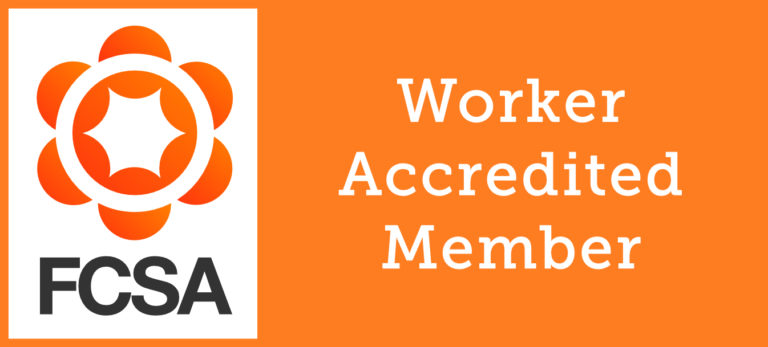
Despite the pandemic, contracting as a form of employment is continuing to grow in popularity, and many individuals are considering a larger move. A recent survey reveals that 78% of individuals would be willing to temporarily relocate within their national borders or abroad for work, with millions interested in moving continents.
Whilst South Africa has not traditionally been positioned as a popular contracting country, the region offers an abundance of benefits and experiences for temporary and short-term workers. Economic growth, job opportunities, beautiful nature and a multicultural society are just some of the draws of the Rainbow Nation. Generate’s payroll and contractor management professionals reveal everything you need to know about taking on contract work in South Africa.
A Contract Workers’ Guide to South Africa
1. Visas and Legal Working Rights in South Africa
Any individual who is not a citizen or permanent resident in South Africa usually needs to obtain a work visa to take up permanent, contract, temporary or freelance employment. All those travelling for any kind of work must present documentation of the relevant visa before boarding a flight to South Africa. Work visas also act as temporary residence visas, reducing admin for those migrating to the country.
Although work visas last for the same time as an employment contract or for a maximum number of years, visa extensions are usually possible. Types of visas include:
- General Work – The most common type of visa, this option is valid for permanent employees with proof of a permanent job offer for up to five years.
- Critical Skills – Workers in certain professions that the national government deems most urgent and important to the economy can apply. This option is also valid for up to five years however individuals will not need confirmed employment in the country, and instead must submit only written proof of skills and/or professional qualifications.
- Intra-Company Transfer (ICT) – Individuals who have worked for a multinational company in their home country for at least six months can apply to relocate to its local branch for up to four years.
- Business Visa – Those planning to start or work under their own business will need to apply for this option. A detailed business plan, proof of compliance with local company law and a workforce of at least 60% South African nationals are required to obtain this visa.
All legitimate qualifications from abroad should be accepted by any new employer, empowering contractors to aspire to the same level of achievement and job title they would expect in their home nation.
2. Finding Contracting Jobs in South Africa
South Africa is the continent’s largest economy, delivering a wealth of employment prospects to local residents and expat and migrant workers. As part of its recovery from the pandemic, the country’s economy is expected to grow in 2021 and 2022, with growth of 2.9% year on year in 2021 alone.
Eight industries recorded positive growth between the third and fourth quarters of 2020, with the largest positive contributors to GDP growth coming from the manufacturing, trade and transport industries. Chief Economist at asset manager Stanlib, Kevin Lings, commented of the recent growth, “The 6.3% was above expectations. I think similar to the third quarter, growth exceeded expectations because almost every sector of the economy recorded improved growth.”
South Africa experiences urgent skills shortages in areas where contractors are highly skilled. The top talent gaps in the country include technical specialists, engineers, accountants, cybersecurity professionals, network administrators and qualified teachers. The lack of experienced and skilled candidates in these areas, alongside increasing expectations for higher rates of pay amongst permanent workforces, present the perfect opportunity for skilled contractors from abroad.
With opportunities in abundance, the most popular job boards enabling contractors to search for their next role include:
Those seeking freelance or temporary employment in manufacturing and engineering will find a thriving manufacturing hub: South Africa (SA) is the most industrialised and diversified economy on the continent. IT and tech contractors are particularly welcome due to the nation’s significant investment in the tech industries. As the most technologically advanced African nation, SA received higher volumes of new IT and software projects than any of its neighbours in 2020, encompassing almost half of all new African tech projects in this category. With continued championing and investment from venture capitalists, alongside Government interest and financial backing, the SA IT and tech industry is waiting and ready for the next wave of technological talent.
3. Tax and Pay in South Africa
The country’s official currency is the South African rand, also shown using the currency code ZAR. The rand is a floating currency, meaning the value of ZAR against other currencies goes up and down all the time, and regularly checking on exchange rates is recommended for those temporarily working there.
All employees and self-employed individuals must register as new taxpayer with the South African Revenue Service as soon as they begin a work assignment. The amount of tax required to be paid is residence-based: as non-permanent residents of South Africa, contractors will only be taxed on their South African income.
Pay and day rates also stretch further in the country. The low cost of living means a greater percentage of your income can be spent on enjoying all the region has to offer.
4. Enjoying the Best Aspects about Working in South Africa
Consistently ranked as one of the best African countries to work in any capacity, South Africa’s Cape Town was also recently declared the continent’s most appealing city in which to live and work.
Cape Town and other cities and regions offer a wealth of benefits and experiences, including:
- Nature – Wildlife safaris and beautiful coastline exist across the nation, due to the country’s ongoing commitment to conservation.
- Entertainment and Experiences – Temporary workers can enjoy new places and activities for months on end, visiting historical neighbourhoods, national parks and thriving city life and getting involved in community development projects.
- International and Diverse – The country has 11 official languages and is home to workers and residents who originate from across the world. In particular, Johannesburg and Durban are popular with international workers, meaning that travelling contractors will find a bustling and friendly social community.
Help with Payroll, Tax and International Services for Contractors
Looking for contract work in a different country can be challenging at the best of times. Generate’s experienced contractor management specialists have helped temporary workers across 90 different countries around the world – find out how we could help you.
Not sure about your next career move? Discover the 5 Best African Countries for Contractor Jobs.











